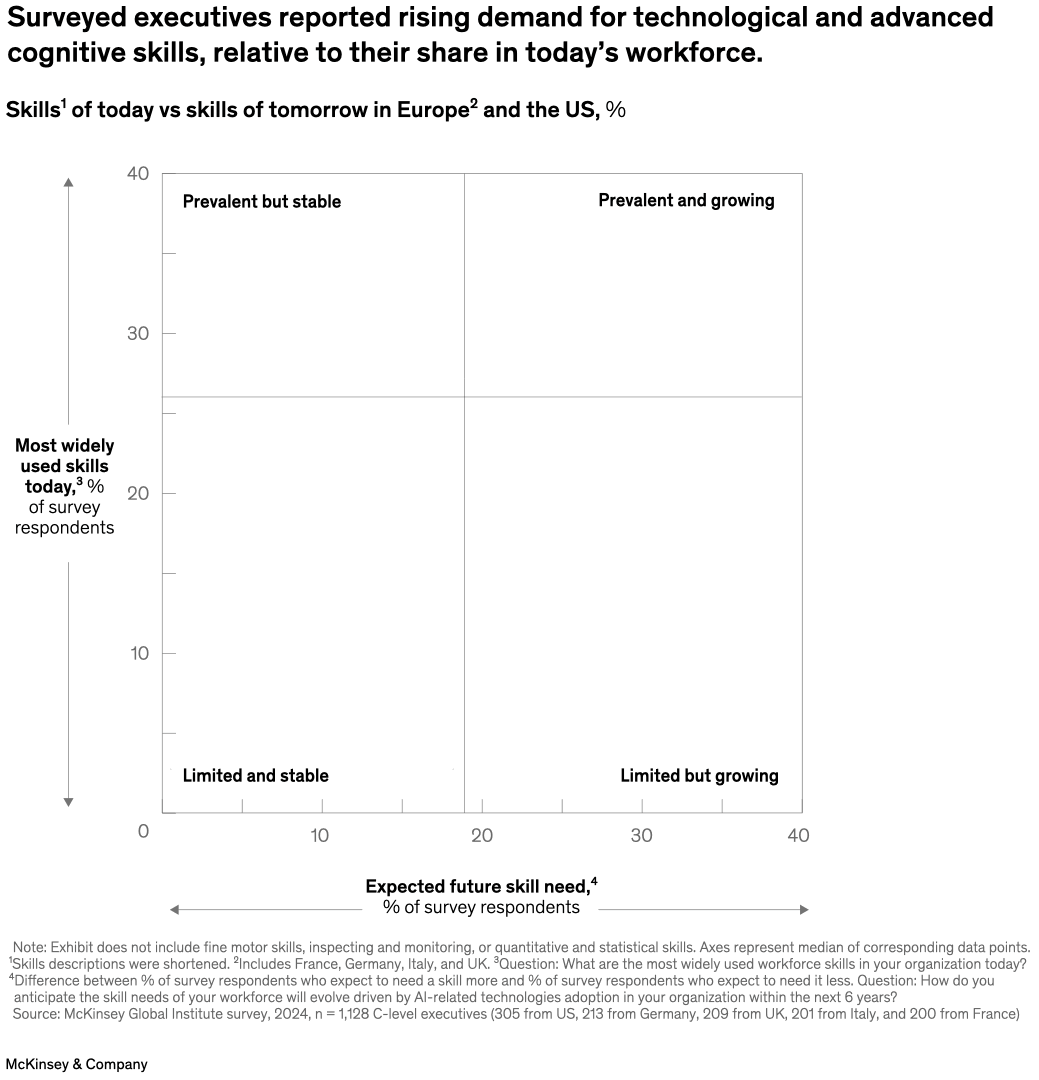As AI reshapes the business landscape, leaders are grappling with skills mismatches. About one-third of executives in a recent McKinsey survey indicate shortfalls among their employees in critical areas, including social and emotional skills and technological skills, Sven Smit, senior partner and chair of the McKinsey Global Institute, and coauthors explain. Approximately 40 percent of respondents indicate a shortage of workers with higher cognitive skills such as critical thinking, which is important for working with new tech such as AI and automation.

Image description:
A scatterplot displays the relationship between the most widely used skills in today’s workforce in Europe and the US (y-axis) and employers’ expectations that the same skills will be needed in the future (x-axis), as a percentage of survey respondents. The skills are grouped into 5 archetypes: technological, higher cognitive, social and emotional, basic cognitive, and physical and manual. The scatterplot shows that the skills employers expect to have the highest demand for in the future fall into the technological, higher cognitive, and social and emotional archetypes.
Footnote: Europe includes France, Germany, Italy, and UK.
Source: 2024 McKinsey Global Institute Survey, n = 1,128 C-level executives (305 from the US, 213 from Germany, 209 from the UK, 201 from Italy, and 200 from France).
End of image description.
To read the report, see “A new future of work: The race to deploy AI and raise skills in Europe and beyond,” May 21, 2024.